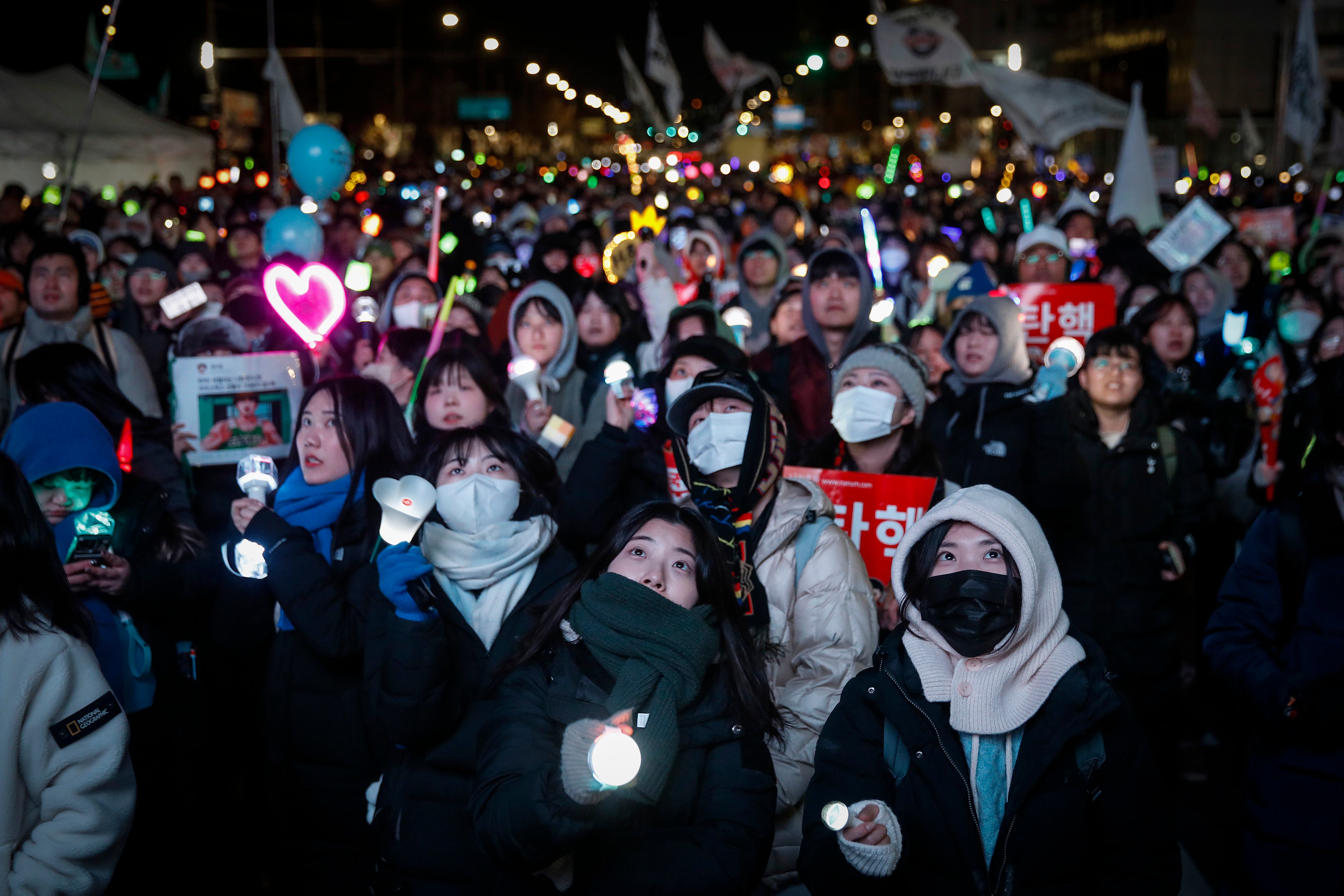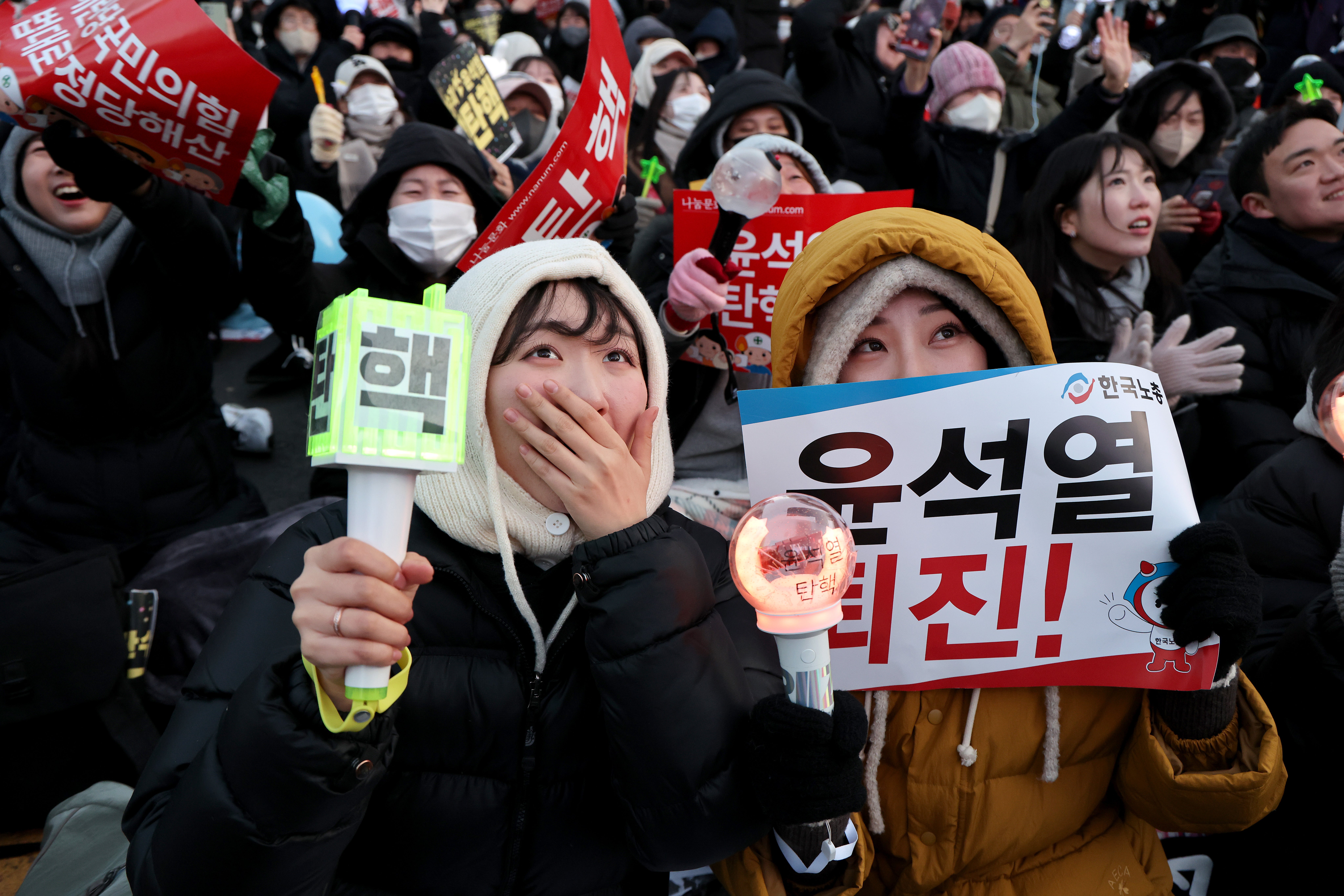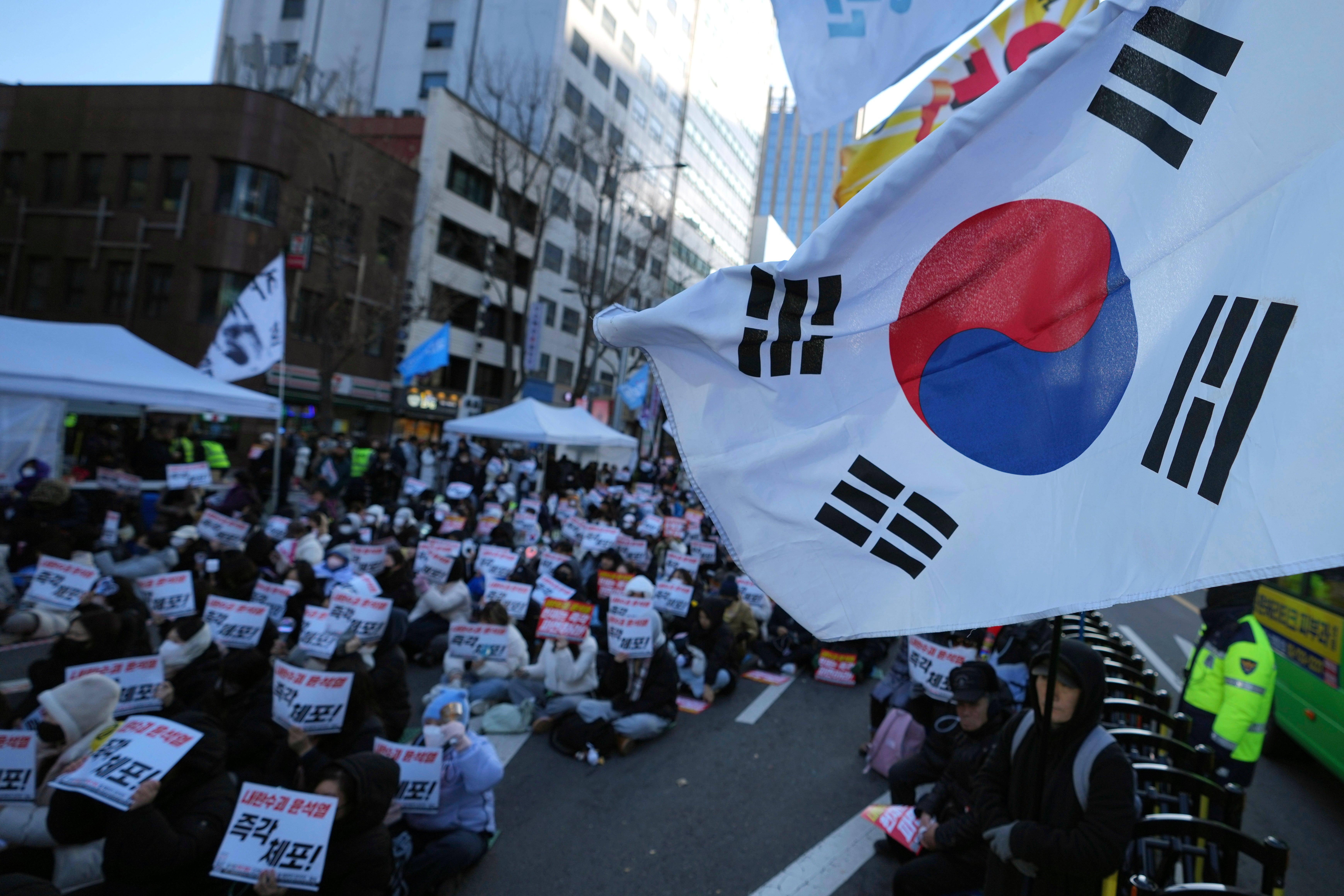Your support helps us to tell the story
From reproductive rights to climate change to Big Tech, The Independent is on the ground when the story is developing. Whether it’s investigating the financials of Elon Musk’s pro-Trump PAC or producing our latest documentary, ‘The A Word’, which shines a light on the American women fighting for reproductive rights, we know how important it is to parse out the facts from the messaging.
At such a critical moment in US history, we need reporters on the ground. Your donation allows us to keep sending journalists to speak to both sides of the story.
The Independent is trusted by Americans across the entire political spectrum. And unlike many other quality news outlets, we choose not to lock Americans out of our reporting and analysis with paywalls. We believe quality journalism should be available to everyone, paid for by those who can afford it.
Your support makes all the difference.
The leader of South Korea’s ruling People Power Party has resigned for backing presidentYoon Suk Yeol’s impeachment over his attempt to impose martial law.
Han Dong Hoon, once a close ally of Mr Yoon, said he was concerned about violence breaking out if martial law hadn’t been lifted, and defended his decision as a stance against illegal actions. “Martial law in the advanced nation that’s South Korea, in 2024. How angry and disappointed must you have all been?” he said at a press conference on Monday.
“Even though it was done by a president our party produced, being misunderstood as defending illegal martial law that mobilised the military is a betrayal of this great country.
I tried in every possible way to find a better path for this country other than impeachment, but in the end, I could not. It’s all because of my shortcomings. I’m sorry.”
Mr Han’s relationship with Mr Yoon started to deteriorate earlier this year when he suggested that the first lady apologise over allegations of accepting a luxury Dior bag.
The rift widened after it was revealed that Mr Yoon had ordered the arrest of Mr Han and other politicians under martial law.
Mr Han then called for Yoon’s impeachment, describing him as a threat to democracy.
Mr Yoon, meanwhile, failed to appear for questioning in a separate investigation on Sunday, citing the need to finalise his legal defence team.
South Korea’s Constitutional Court has started reviewing Mr Yoon’s impeachment.
A public hearing will take place on 27 December, and the court has up to six months to decide whether to remove Yoon from office.

The impeachment follows accusations of insurrection, abuse of power, and obstructing rights related to the short-lived martial law.
As a result of the impeachment, Mr Yoon’s presidential authority was suspended, with prime minister Han Duck Soo taking over as acting president.
The president commands the armed forces, makes treaties, issues pardons, vetoes bills, and appoints officials.
Mr Yoon was impeached on Saturday following a second vote in parliament. The National Assembly passed the motion with a big majority of 204-85. Mr Yoon was suspended from his duties at 7.24pm local time, according to Yonhap news agency.
In response, the president vowed to “never give up” and urged officials to ensure government stability during what he described as a “temporary” pause in his presidency.
The acting president said he would do his best to run the government stably after the impeachment of Mr Yoon. “My heart is very heavy,” he told reporters after parliament approved the impeachment motion.

Mr Yoon and several senior officials face potential charges of insurrection for imposing martial law. A joint team from the country’s police, defence ministry, and an anti-corruption agency plan to question Mr Yoon on Wednesday.
Attempts to serve a summons at the presidential office and Mr Yoon’s official residence were rejected by the presidential security service, reports said.
Last Saturday, Mr Yoon narrowly avoided impeachment after most ruling party lawmakers abstained from voting.
But public dissatisfaction has surged in recent weeks, with protests growing in size and Mr Yoon’s approval ratings sinking.
Early on Monday, South Korea’s finance minister, Bank of Korea governor, and top financial regulators convened, pledging continuous monitoring of financial and foreign exchange markets, according to Reuters.

The benchmark KOSPI index rose for the fifth consecutive session, reaching its highest level in over two weeks, as authorities committed to stabilising financial markets and analysts pointed to reduced political uncertainty.
Mr Yoon’s unexpected martial law declaration and the resulting political crisis unsettled markets and raised concerns among South Korea’s diplomatic partners about the country’s ability to deter nuclear-armed North Korea.
In one of his first acts as acting president, Mr Han spoke with US president Joe Biden on Sunday, reaffirming South Korea’s unwavering commitment to foreign and security policies based on the alliance between the two countries.
South Korea’s Hankyoreh Shimbun reported that Mr Yoon is prohibited from visiting the presidential office during the Constitutional Court’s review of his impeachment.
While his official duties remain suspended, Mr Yoon can remain at the presidential residence in Hannam, Seoul, and retain office privileges such as the presidential limousine and airplane. He will continue to receive his salary but no compensation for work expenses.
Additional reporting by agencies.

